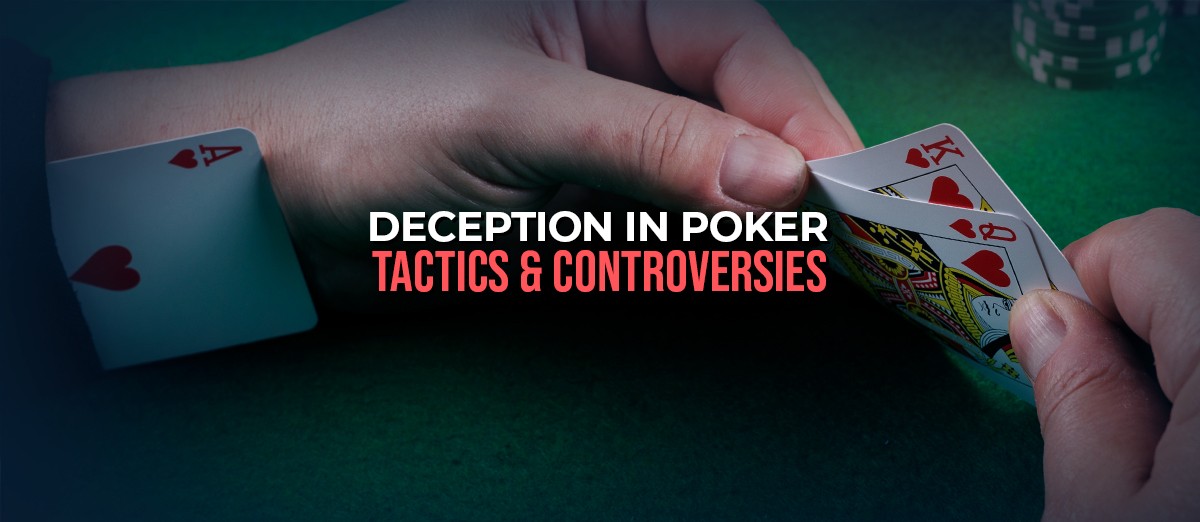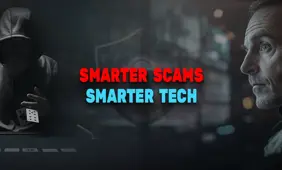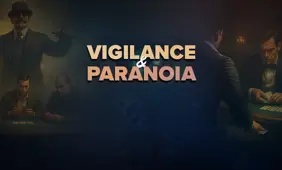R. Paul Wilson On: Controversial Scenarios and Deception in Poker

Knowledge of deception is an essential tool in all walks of life, especially when gambling, where understanding how we might be deceived or manipulated can be both a means of protection and powerful strategic advantage in games like poker.
The key is to learn about all forms of deception so you might recognize core methods or principles applied to new scams or scenarios. Critically, knowledge of scams also stops us from being in a constant state of paranoia when playing online or in brick-and-mortar casinos.
I find it’s often necessary to remind myself (and my readers and clients) that deceptive thinking can be applied to many aspects of life, and a richer, more varied appreciation of how people are manipulated will better protect us when new or unexpected techniques are created or repurposed for new ways to deceive.
In my next article, we will look at how simple con games can be exploded into billion-dollar scams and how a little “dangerous imagination” on our part can allow us to think like the bad guys to anticipate future scams.
The Controversial Case of WSOP 2023
For now, I want to apply this thinking to an active situation happening as I write this article at the World Series of Poker in Las Vegas. I’m going to avoid naming names, but a quick search online will reveal the players in this little soap opera while I offer my opinion on what might be happening.
I must stress that it really is an observer’s opinion, and to avoid any confusion, I have no evidence, nor have seen any footage that suggests the player in question was definitely cheating. That being said, there are other possibilities worth considering though nothing about this article will resolve the matter. Instead, we will analyze potential deception at the highest level of the game and use that analysis to consider possible scenarios closer to home.
As I write this, a small number of very high-level players at the 2023 World Series of Poker are embroiled in a controversy where one of the players has been accused of marking cards while behaving in a manner considered disruptive and disrespectful to other players. Essentially, PLAYER A has been accused of handling cards and making decisions consistent with being able to read other players’ cards.
Typically, cheaters hit and run with “paper” (marked cards) rather than play their advantage slowly, so it’s a matter of where and when they can safely get cards into a game. As I’ve described in the past, working with marked cards is a double-edged sword where any advantage gained often leaves a trail of breadcrumbs back to those cards (and the person using them). It takes real skill to play a marked deck with subtlety, and in the long run, there might be easier ways of stealing money.
Unmasking Deceptive Tactics
Marking cards that are already in play is a powerful move, especially if those cards remain on the table for a substantial amount of time, I had an old hustler friend who used a secret chemical formula for “hitting” plastics so the marks were both subtle (only an expert could read them) and permanent and because those plastic cards were rotated in and out of games for weeks (and he marked every deck he was dealt) the risks to his health from his mystery material were considerable.
At first, I found it hard to believe he was never caught because, eventually, playing paper almost always gets you into trouble, but he used those marks in a unique way - a method I will discuss another time - and was able to fly under the radar for years, even if he marked every card in the club!
Consider a completely separate (well-known) scandal with Player B, who famously played in so-called “God mode” on a live-streaming event, constantly looking at his phone before making unbelievable calls at the table.
Since the cards used were being detected via RF chips and relayed to a computer (supposedly with a 30-minute delay), the assumption is that Player B (and perhaps a confederate) had interfered with software or hardware to receive live reads during a game. If that’s what he was doing, he played like an idiot, and if he was merely checking emails or texts mid-hand, he just happened to enjoy the most unbelievable amount of luck at the same time.
Either way, unless proven, Player B is only suspected of wrongdoing because the cards belonged to the club, not the player, and there’s no proof one way or the other.
Back to Player A, a world-class gambler who has played in the biggest poker tournaments in the world, enjoys needling and irritating his opponents during play. Certainly not a stupid man and perhaps even a genius, given his record of wins and general demeanor. Did this player - often described by commentators as a “villain” - actually try to mark cards during the biggest poker event of the year at a final table where the cards are recorded and every action is on camera being watched by millions of people?
A few players seem to think so and have accused Player A publicly, but as a remote viewer, I seriously doubt he was marking those cards. At the time of writing, the organizers stated that the cards were examined and not marked, and I would be curious to know who checked those cards. I’ve encountered many people in the industry too proud to seek outside (expert) advice, but if they did consult an expert, then it wouldn’t surprise me to learn the cards were clean.
To understand why, consider an old BBC documentary about magician Ricky Jay - who understood a great deal about how con men think - where he demonstrated a scam playing head-to-head with a number of opponents invited to play for real money. In the process, Ricky berated, bullied and manipulated his victims one after the other, yelling at the film crew and generally throwing shit and shade at anything that moved.
And it worked!
Ricky was hustling, wearing down his marks to force them into committing cash to a bet they couldn’t possibly win, and it’s virtually impossible to make clear decisions while Ricky Jay is yelling in your face and carving a hole in your wallet.
Analyzing Players' Hustling Tactics in High-Stakes Poker
There’s a difference between a hustler and a grifter, and with regard to how Player A likes to play, his style is more hustle than grift. He is famous for speech play, taking his time on his hands and generally annoying his fellow players. This can be an effective tactic that causes players to make poor decisions, and whether or not this works, in the long run, is up to you, but it would not be out of character for such a player to deliberately bait his opponents by pretending to do something he wasn’t.
His behavior might merely be an expression of his personality - perhaps he is truly erratic and clumsy when handling cards - or perhaps he consciously acted in a manner that would frustrate, confuse and anger his opponents. All of these are tactics used by con artists, hustlers, grifters and fraudsters, and all of them are perfectly within the rules of a game where deception is essential.
Poker is about making the best decisions in a multitude of situations, and as not only the most famous gamblers but even the amateur ones can attest, we tend to make dumber decisions (profitable or not) when we are not thinking clearly. If those cards were never marked, then it’s feasible he deliberately simulated the actions of marking and reading cards (badly) purely to create suspicion and frustrate opponents into bad decisions.
From what I’ve seen, my opinion - and it’s only my opinion - is that Player A may have been deliberately manipulating the mood at the table, and the players who fell for this strategy should be forgiven for believing the illusion he seemed to be creating. Or, perhaps Player A is just extremely misunderstood.
Anything may be possible, but always remember that in games of deception, nothing is what it seems.





Review this Blog
Leave a Comment
User Comments
comments for R. Paul Wilson On: Controversial Scenarios and Deception in Poker